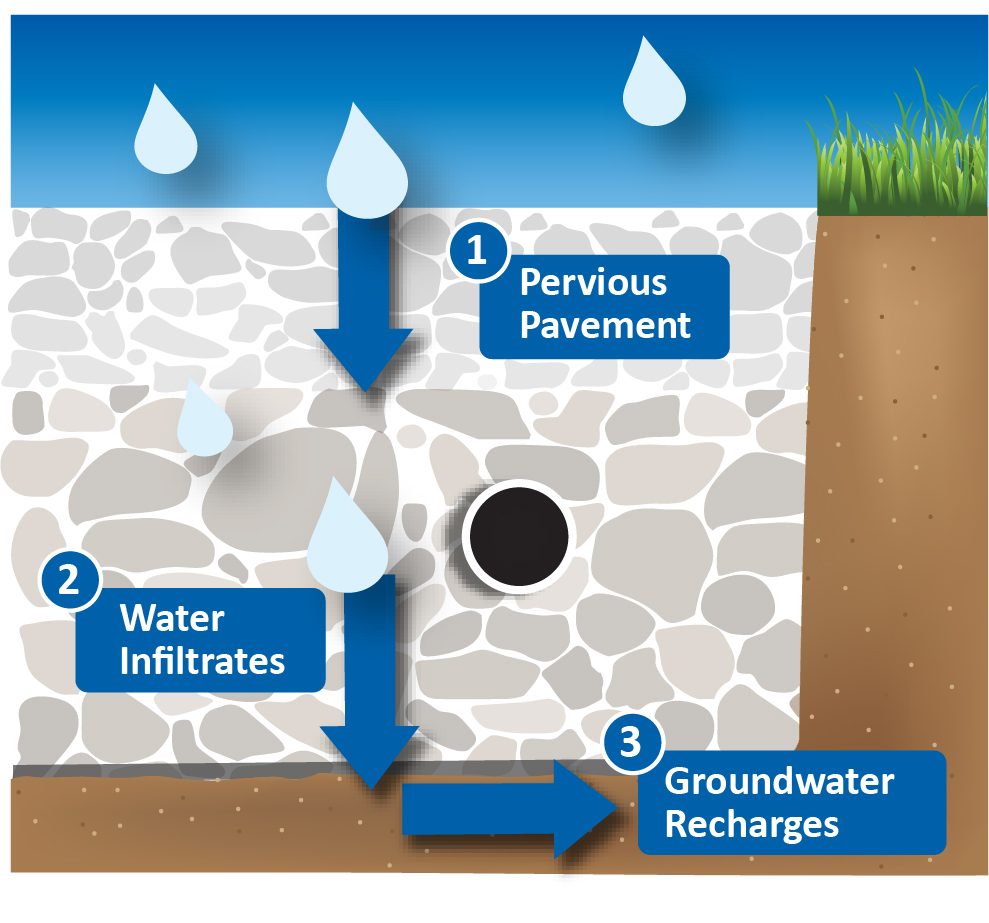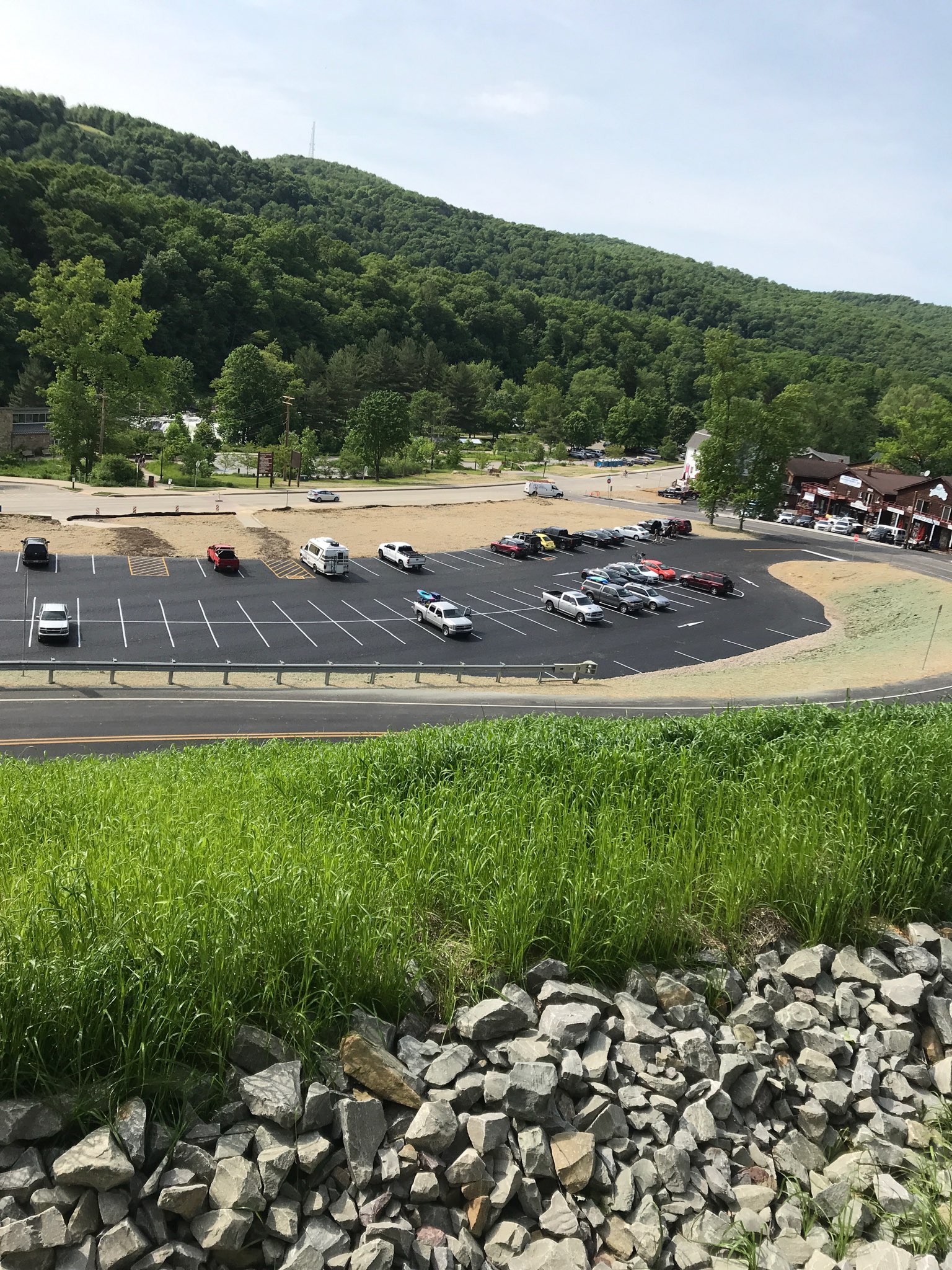Pervious Pavement
Pervious pavements provide a valuable stormwater management benefit to help offset the costs of constructing and maintaining traditional Stormwater Control Measures, like retention basins. The cost to install pervious pavement is approximately $7 per square foot, which is slightly more expensive than traditional pavement. However, at the right location, the benefits of pervious pavement can outweigh the costs.
How Does It Work?
Asphalt and concrete pervious pavements allow water to pass through the surface and temporarily settle in a stone reservoir before infiltrating into the ground. Although not appropriate for high-traffic volumes or high-speed roads, this "green" technology is especially useful for parking lots, pull-offs, sidewalks, center islands and walking or biking trails where heavy loads are not expected.
 Maintenance of pervious pavement is an important component of its durability and benefits. Debris and sediment may lodge in the pavement pores and significantly slow water drainage. On an annual basis, pressure washing or vacuuming the surface ensure permeability. Regular inspection and permeability testing are also recommended.
Maintenance of pervious pavement is an important component of its durability and benefits. Debris and sediment may lodge in the pavement pores and significantly slow water drainage. On an annual basis, pressure washing or vacuuming the surface ensure permeability. Regular inspection and permeability testing are also recommended.
Through the STIC, PennDOT updated Publications 23, 242, 408 and 584, which paved the way for this application to be used statewide.
What Are The Benefits?
Pervious pavements reduce stormwater runoff and contamination and recharge groundwater supplies. This stormwater management technique helps water and air circulate to plant root systems when infiltrating into the ground. Pervious pavements can also melt snow and ice faster, requiring less salt on the pavement.
Innovation In Motion
The Capital Area Greenbelt – Fort Hunter Connector project in Harrisburg, Dauphin County used pervious pavement for a shared-use path adjacent to State Route 39, between Front and Sixth streets. It provides safe, off-street, non-motorized access to the city. Pervious concrete was used with a linear reservoir beneath the path to keep runoff generated by this project contained within its limits.

Pervious Pavement is also being used in other projects across the state including a project at Ohiopyle State Park in Fayette County. This material is being used as a stormwater retention basin in one of the park’s parking lots as well as several of the bike trails. The Pennsylvania Department of Conservation and Natural Resources (DCNR) has also constructed several pervious pavement projects in various state and local parks, such as a Benjamin Rush State Park parking lot in Philadelphia County.
DID YOU KNOW... Groundwater accounts for 56 percent of Pennsylvania’s water supply, especially in rural areas of the state? Every acre of land that is covered with an impervious surface generates 27,000 gallons of surface runoff instead of groundwater recharge during a one-inch rainstorm.
More Information
For more information about this innovation, contact the
STIC Management Team.